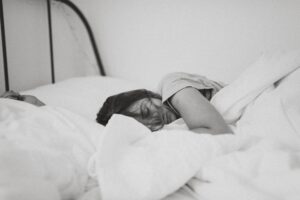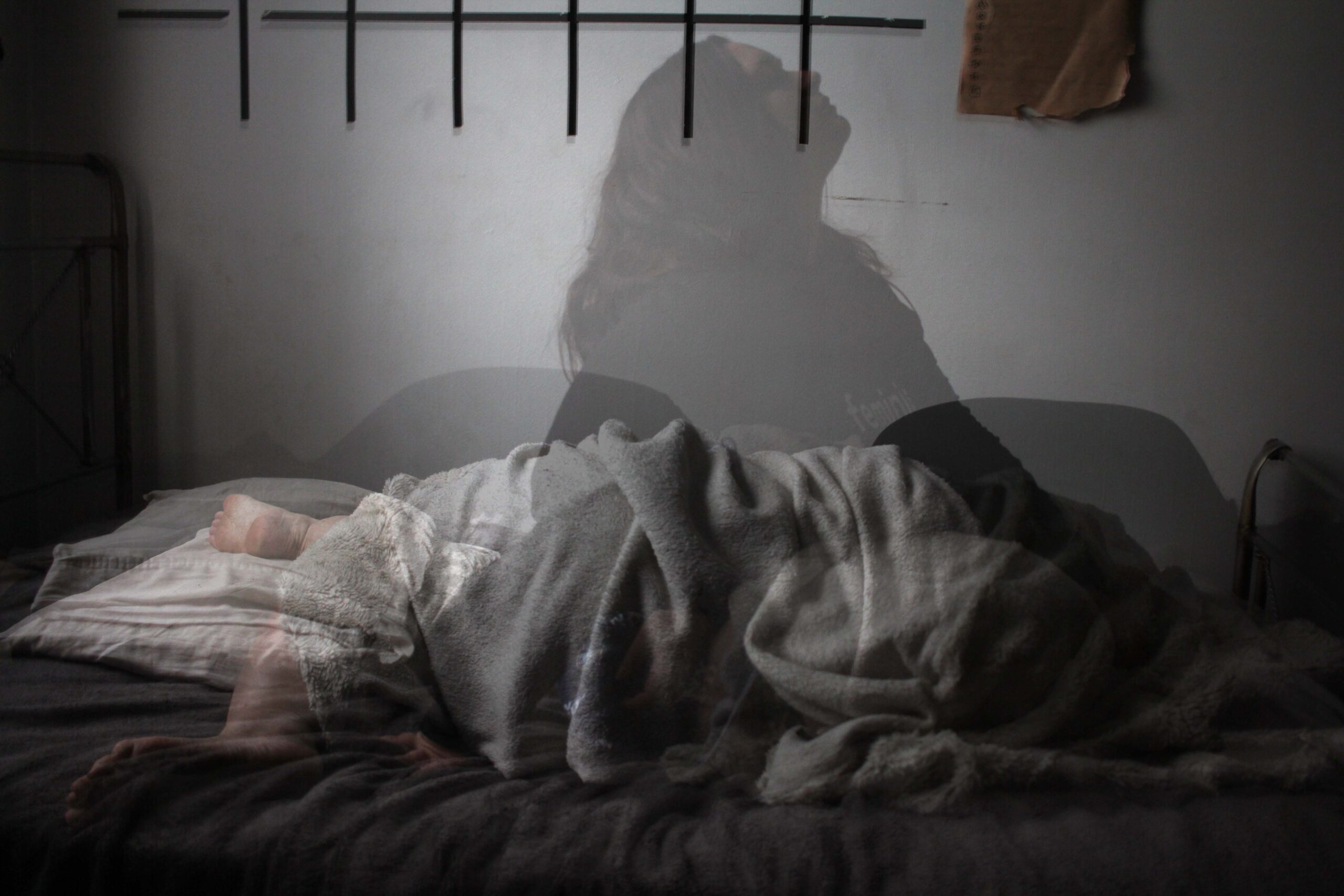What are Sleep Disorders?
Sleep Disorders involve issues with quality, quantity, and timing of sleep, which can impact levels of distress in the daytime and impair functioning. Another term for sleep disorders is sleep-wake disorders. Insomnia is one of the most common and well-known sleep-wake disorders1.
Importance of Sleep
Sleep is one of our basic human needs. Without sleep, our physical and mental health deteriorates. When we sleep, we go through three-to-five cycles per night of the two types of sleep we generally experience. These types of sleep are called Rapid Eye Movement (REM) and Non-REM. REM sleep is when most of our dreaming happens. Non-REM has three phases, which include our deepest level of sleep2.
Dangers of Lack of Sleep
Sleep helps our brain to function properly. When we do not get good enough quality or quantity of sleep, we may suffer from fatigue, decreased energy, irritability, and problems focusing. We also can find concerns with decision-making abilities and troubles with mood related to poor sleep3. Sleepiness can interfere with cognitive functioning, leading to memory deficits, learning disabilities, and personality change4. Even more concerning, there have been links found between too little or too much sleep and chronic health concerns, such as heart disease, osteoarthritis, and Parkinson’s disease5.
Sleep Quality
Not only is the type of sleep important, but also the time that we sleep is critical. Our body has what we call a circadian rhythm, which means that our body operates on a 24-hour cycle, which allows our body to know when it is time to sleep. When someone’s circadian rhythm is ‘off’, it can lead to problems with sleep6.
Quantity of Sleep
In addition to the timing of sleep, the amount of sleep we require varies from one age to the next, as well as from one person compared to another. Studies show that most adults require between seven and nine hours of quality sleep per night7.
Types of Sleep Disorders
Around 70 million Americans experience chronic sleep disorders8. There are approximately 80 different types of sleep disorders. While there are far more sleep disorders than the ones discussed below, these six sleep disorders are the most common: insomnia, sleep apnea, central sleep apnea, sleep-related hypoventilation, narcolepsy, and restless leg syndrome9.
Common Sleep Disorders
Insomnia Disorder
Insomnia is the most common sleep disorder. This disorder involves problems falling asleep or staying asleep. One out of three adults report symptoms of insomnia. 10-15 percent of adults report daytime impairments. 6-10 percent of adults report symptoms severe enough to meet the criteria for insomnia disorder. 40-50% of adults with insomnia also have another mental health disorder10. About 50 percent of adults experience occasional periods of insomnia. Around one in ten adults suffer from chronic insomnia. It may be a short-term problem or can last long periods of time11.
Obstructive Sleep Apnea
Obstructive sleep apnea involves interruptions in breathing during sleep. Someone with sleep apnea may have repeated episodes of airway obstruction during sleep, which may result in gasping or snorting, pauses in breathing, and snoring. A sleep study can be conducted to diagnose sleep apnea. An estimated 2 to 15 percent of middle-aged adults and more than 20 percent of older adults experience sleep apnea. Risk factors for sleep apnea include obesity, male gender, and family history12.
Central Sleep Apnea
With central sleep apnea, breathing is not being controlled properly while sleeping, which causes the individual to start and stop breathing during sleep. This is less prevalent and rare than obstructive sleep apnea. It is most commonly found in older adults, those with heart disorders or strokes, and with those using opioid pain medications13.
Sleep-Related Hypoventilation
Individuals with sleep-related hypoventilation experience episodes where breathing is shallow, their blood carbon dioxide levels are elevated, and they have low oxygen levels while sleeping. Individuals with sleep-related hypoventilation often experience insomnia or excessive daytime sleepiness. Those with obesity, hypothyroidism, and individuals taking benzodiazepines and opiates are at an increased risk of experiencing sleep-related hypoventilation14.
Narcolepsy
Narcolepsy is characterized by daytime sleepiness mixed with extreme muscle weakness. Sometimes the daytime sleepiness may involve episodes of irresistible sleepiness, meaning that the individual cannot possibly stay awake, regardless of the consequences. Individuals may experience ‘sleep attacks’ in odd situations, even while doing physical activity15.
Restless Leg Syndrome (RLS)
RLS involves an unpleasant sensation that is described as a ‘creeping’ feeling. This feeling often starts in the lower legs and involves aches and pains in the legs. This feeling is relieved by moving, walking, or kicking your legs. RLS has been linked to abnormalities in dopamine16.

Symptoms of Sleep Disorders
Insomnia
- Difficulty falling asleep
- Waking up throughout the night and having difficulty falling back asleep
- Waking up too early in the morning
- Feeling unrefreshed after sleep
- Having fatigue, sleepiness, problems with mood regulation, difficulty concentrating, or mistakes while working/driving due to poor sleep17.
Obstructive Sleep Apnea
- Excessive daytime sleepiness
- Loud snoring
- Episodes of stopped breathing during sleep
- Awakening abruptly accompanied by gasping/choking
- Awakening with a dry mouth or sore throat
- Morning headaches
- Difficulty concentrating during the day
- Mood changes, such as depression or irritability
- High blood pressure
- Decreased libido18.
Central Sleep Apnea
- Episodes of not breathing or abnormal breathing patterns during sleep
- Difficulty staying asleep (insomnia)
- Excessive daytime sleepiness
- Difficulty concentrating
- Mood changes
- Morning headaches
- Snoring19.
Sleep-Related Hypoventilation
- Daytime fatigue
- Difficulty exercising
- Excessive daytime sleepiness
- Morning headaches
- Poor sleep quality
- Shortness of breath20.
Narcolepsy
- Excessive daytime sleepiness
- Sleep attacks
- Cataplexy, which is sudden temporary muscle weakness/loss of muscular control
- Sleep paralysis
- Hallucinations
- Memory deficits
- Restless sleep
- Headaches
- Automatic behaviour, which is continuing an activity without having any recollection of it afterwards22.
Self-Help & Sleep Hygiene
Utilizing Relaxation Techniques
Relaxation techniques can help with falling asleep when struggling to fall asleep, such as meditation, breathing exercises, yoga, mindfulness, massage therapy, and stretching. These techniques can help with calming thoughts and getting into a relaxed state before sleep23.
Sleep Aids
There are a number of sleep aids that can be utilized to help individuals fall and stay asleep more easily. A commonly utilized over-the-counter sleep aid is Melatonin, which is a hormone produced by the brain when exposed to darkness. The idea behind utilizing Melatonin helps with the timing of your circadian rhythm. For those who are not experiencing relief from Melatonin, prescribed medication may be needed through a medical doctor24.
Sleep Hygiene
Sleep hygiene refers to your ‘bedtime routine’, as well as things that contribute to your sleep schedule. Here are some things to consider trying to improve sleep hygiene:
- Sticking to a sleep schedule: maintaining the same schedule for going to sleep and waking up daily, even on weekends
- Doing calming activities at the end of the day, such as reading, taking a bath, etc.
- Avoiding electronic devices close to bedtime
- Avoiding naps, especially in the afternoon
- Exercising daily
- Avoiding doing anything other than sleeping in bed, specifically prioritizing your bed for sleeping. This includes eliminating things like watching television, eating, working, or using electronics in bed.
- Avoiding alcohol, caffeine, and heavy meals in the evening25.
- Creating a positive sleep environment by ensuring your room is comfortable, dark, cool, and quiet
- Avoid the clock by turning clocks away from viewing so you are not focused on the time or calculating the amount of sleep26.
Getting Additional Help for Sleep Disturbances
If you are looking for a therapist to discuss ways to improve your sleep schedule or discuss possible reasons for sleep disturbances, our therapists through Online-Therapy.com provide Cognitive Behavioral Therapy (CBT)
Sleep is essential to our well-being and mental health. We have a variety of therapists who would love to help you with mental health concerns. Our platform offers a complete online therapy toolbox for individuals and couples! Our site has multiple options, which involve time with a personal therapist who can support you throughout your journey. If this is something you have an interest in, we would love to hear from you.
References
American Psychiatric Association. (2020, August). What are Sleep Disorders. American Psychiatric Association. https://www.psychiatry.org/patients-families/sleep-disorders/what-are-sleep-disorders#:~:text=There%20are%20several%20different%20types,both%20physical%20and%20emotional%20problems.
Center for Disease Control and Prevention. (2022, December). Key Sleep Disorders. U.S. Department of Health and Human Services. https://www.cdc.gov/sleep/about_sleep/key_disorders.html
Cleveland Clinic. (2020, December). Common Sleep Disorders. Cleveland Clinic. https://my.clevelandclinic.org/health/articles/11429-common-sleep-disorders
Mayo Clinic. (2021, July). Obstructive Sleep Apnea. Mayo Clinic. https://www.mayoclinic.org/diseases-conditions/obstructive-sleep-apnea/symptoms-causes/syc-20352090
Mayo Clinic. (2021, August). Central Sleep Apnea. Mayo Clinic. https://www.mayoclinic.org/diseases-conditions/central-sleep-apnea/symptoms-causes/syc-20352109
NHS. (2022, December). Symptoms of Narcolepsy. NHS. https://www.nhs.uk/conditions/narcolepsy/symptoms/
Summer, Jay. (2022, July). Sleep-Related Hypoventilation. Sleep Foundation. https://www.sleepfoundation.org/sleep-apnea/hypoventilation




Leave A Comment